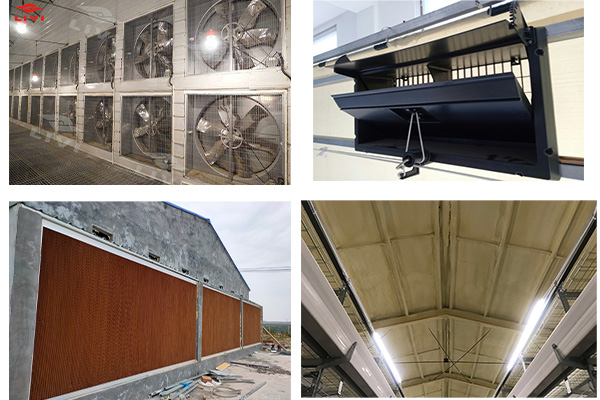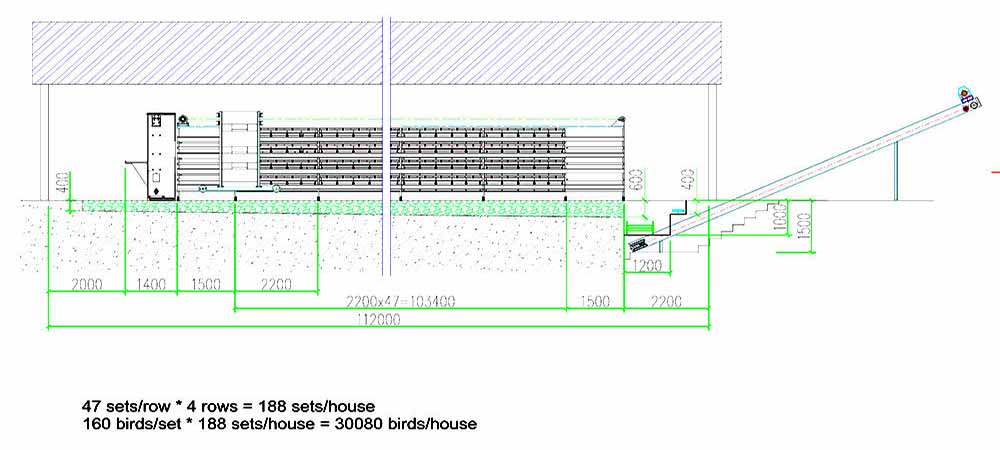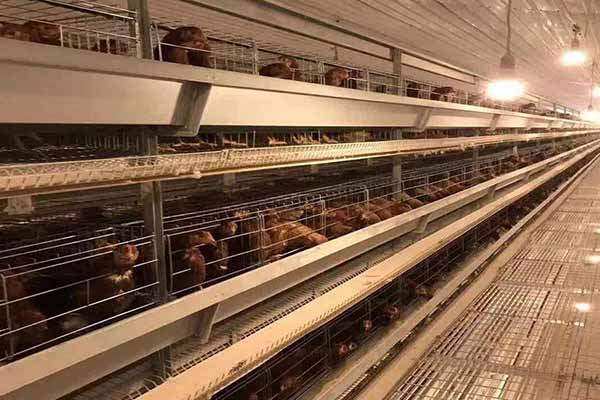How to Start Up a Free Range Chicken Farm: A Comprehensive Guide
Time : 2025-07-02
Starting a free range chicken farm is a rewarding venture that offers both financial and ethical benefits. Free range farming is a method of raising chickens that allows them to roam freely, providing a healthier and more natural lifestyle for the birds. If you’re considering starting your own free range chicken farm, this guide will walk you through the essential steps, from planning to operation.
1. Research and Planning
Before you dive into the world of free range chicken farming, thorough research and careful planning are crucial.
1.1 Market Research
Understand the market demand for free range chicken products in your area. Research local consumers’ preferences, competition, and potential sales channels. This will help you determine the size of your farm and the type of chicken breeds that are most suitable for your market.
1.2 Legal Requirements
Check the local and national regulations regarding free range farming. Ensure that you comply with all legal requirements, including zoning laws, health and safety standards, and animal welfare regulations.
1.3 Business Plan
Create a detailed business plan that outlines your goals, marketing strategy, financial projections, and operational plans. This will serve as a roadmap for your farm and can be used to secure financing if needed.

2. Site Selection and Infrastructure
Selecting the right location and building the necessary infrastructure are critical steps in starting a free range chicken farm.
2.1 Site Selection
Choose a location that provides ample space for the chickens to roam. The site should have good drainage , access to clean water, and be in an area that is free from predators and disease vectors.
, access to clean water, and be in an area that is free from predators and disease vectors.
2.2 Coop and Run Design
Design and build a coop that is secure, weatherproof, and provides shade and shelter for the chickens. The run should be large enough to allow the chickens to move around freely and access food and water.
2.3 Equipment
Invest in high-quality poultry equipment such as feeders, waterers, nesting boxes, and egg collection systems. Professional-grade equipment can improve efficiency and reduce  the risk of disease.
the risk of disease.
3. Chicken Selection and Health Management
Picking the right chicken breeds and maintaining their health are key factors in the success of your free range chicken farm.
3.1 Chicken Breeds
Select chicken breeds that are well-suited to free range environments. Consider breeds that are hardy, lay well, and have good temperament. Dual-purpose breeds like the Orpington or Sussex are popular choices.
3.2 Health Management
Implement a comprehensive health management program to prevent and treat diseases. This includes regular veterinary check-ups, vaccination programs, and biosecurity measures to minimize the risk of disease spread.
4. Feeding and Nutrition
The diet of your chickens plays a crucial role in their health and productivity.
4.1 Feed Quality
Choose high-quality, balanced feed that meets the nutritional needs of your chickens. Free range chickens can benefit from a diet that includes a mix of grains, protein sources, and fresh greens.
4.2 Access to Fresh Water
Ensure that your chickens have constant access to clean, fresh water. This is essential for their health and hydration.
5. Farm Management and Marketing
Effective farm management and marketing strategies are essential for the success of your free range chicken farm.
5.1 Farm Management
Develop a daily routine for feeding, watering, and managing the flock. Regularly check on the chickens to ensure they are healthy and that the facilities are in good condition.
5.2 Marketing
Develop a marketing plan to promote your free range chicken products. Use social media, farmers’ markets, and local businesses to reach your target market. Highlight the benefits of free range farming, such as better taste, health, and animal welfare.
6. Challenges and Solutions
Free range chicken farming comes with its own set of challenges, but with proper planning and management, these can be overcome.
6.1 Predation
Predators can be a significant threat to your flock. Implement predator-proofing measures such as electric fences, covered runs, and regular monitoring.
6.2 Weather and Environmental Factors
Extreme weather conditions can affect the health and productivity of your chickens. Plan for adequate shelter and temperature control in your coop and run.
7. Conclusion
Starting a free range chicken farm requires dedication, knowledge, and careful planning. By following these steps and staying committed to the principles of free range farming, you can create a successful and sustainable business that benefits both your chickens and your customers.











